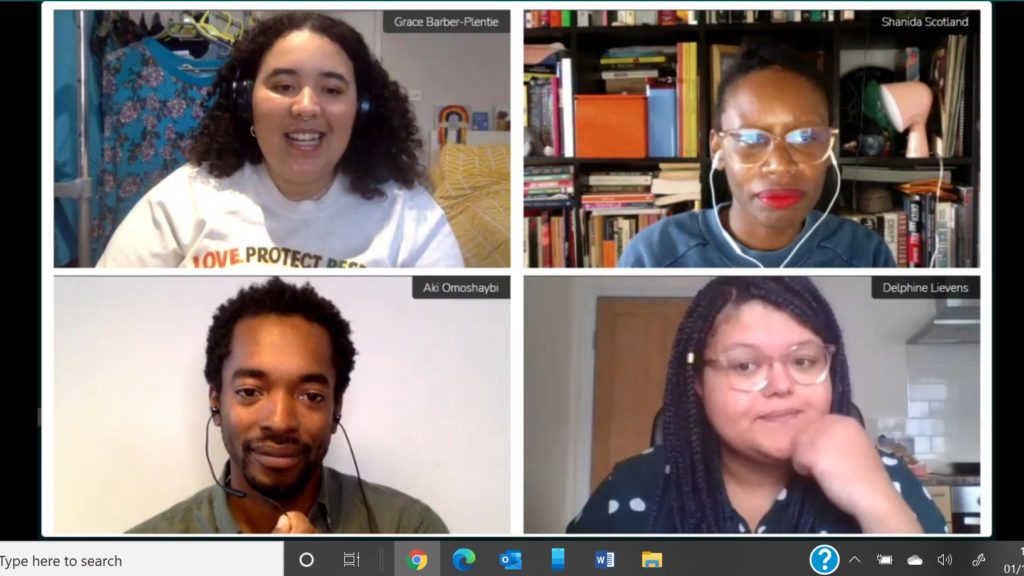Delphine Lievens, Senior Box Office Analyst at Gower Street, chaired the ‘Diversifying British Film Culture’ panel at this year’s This Way Up conference on December 1. Building on her work for the BFI examining Black British films at the box office, the panel was put together with the aim of provoking a discussion around the barriers that prevent diverse films from achieving success and securing theatrical releases in the UK. Panellists included: Grace Barber-Plentie (Marketing Co-ordinator at BFI); Shanida Scotland (Head of Film at the Doc Society); and film director and actor, Aki Omoshaybi.
This Way Up ran a digital edition for the first time this year, from December 1-3. It is the UK’s leading conference for innovation in film exhibition. Each year, it brings together exhibitors from across the country and throughout the sector to connect with one another, learn from industry colleagues and share their thoughts on film in the UK today.
Delphine introduced the panel by sharing some vital statistics from her analysis of the box office performance of Black British directors over the past 10 years. She highlighted that only 28 films by Black directors have been theatrically released in the period. This is an average of around 3 a year, a stark contrast to the 800+ theatrical releases in the UK in 2019.
As a film director himself, Aki Omoshaybi was able to speak directly to this. He compared the film industry in the UK to a club, stating “(it’s) a little film club that is locked up and you have to hunt for the keys.” He discussed the difficulties of finding jobs in an industry riddled with nepotism, and the struggle of self-funding his first feature, REAL, as well as finding a distributor for the film. He also shared his observations that even in the UK, we seem to gravitate towards celebrating US Black filmmakers over our own homegrown talent.
Grace Barber-Plentie also spoke to the restrictions that Black filmmakers face when it comes to getting their films acquired for distribution and shown in cinemas. She explored the idea from a marketeer’s perspective, discussing the issues that come from segregating the “black” audience and making assumptions about their tastes and interests.
This conversation led to an exploration of the themes of ‘Black’ films, and how they are often confined to stories of injustice, crime, slavery, and police brutality. This is often based on the success of previous films like these at the box office – a system which Delphine suggested we need to break away from, as theatrical revenue becomes less relevant and we look to embrace more diverse filmmaking.
All of the panellists agreed that Black filmmakers deserve more creative freedoms, and Shanida was able to speak to this from a funder’s point of view. She described the struggle of looking for new voices, whilst also having to bear in mind that Doc Society are not the soul funder of many film projects, therefore there is an element of commerciality and feasibility that comes into play.
Delphine also posed the question of diversity in the film workforce to the panellists. She cited research that shows only 3-5% of people working in film in the UK are from Black and minority ethnic backgrounds, whilst the 2011 census had the UK BAME population at over 30%. The panellists all agreed that radical action is needed: there is no reason why the workforce in film shouldn’t be representative of the UK population. Diversifying the workforce would lead to a wider variety of films made, released, and shown in cinemas. Shanida Scotland advocated for those in positions of power to consider their impact, “Every part of the industry should be thinking about what power they hold and how they distribute that power.”
Watch the full panel below:




